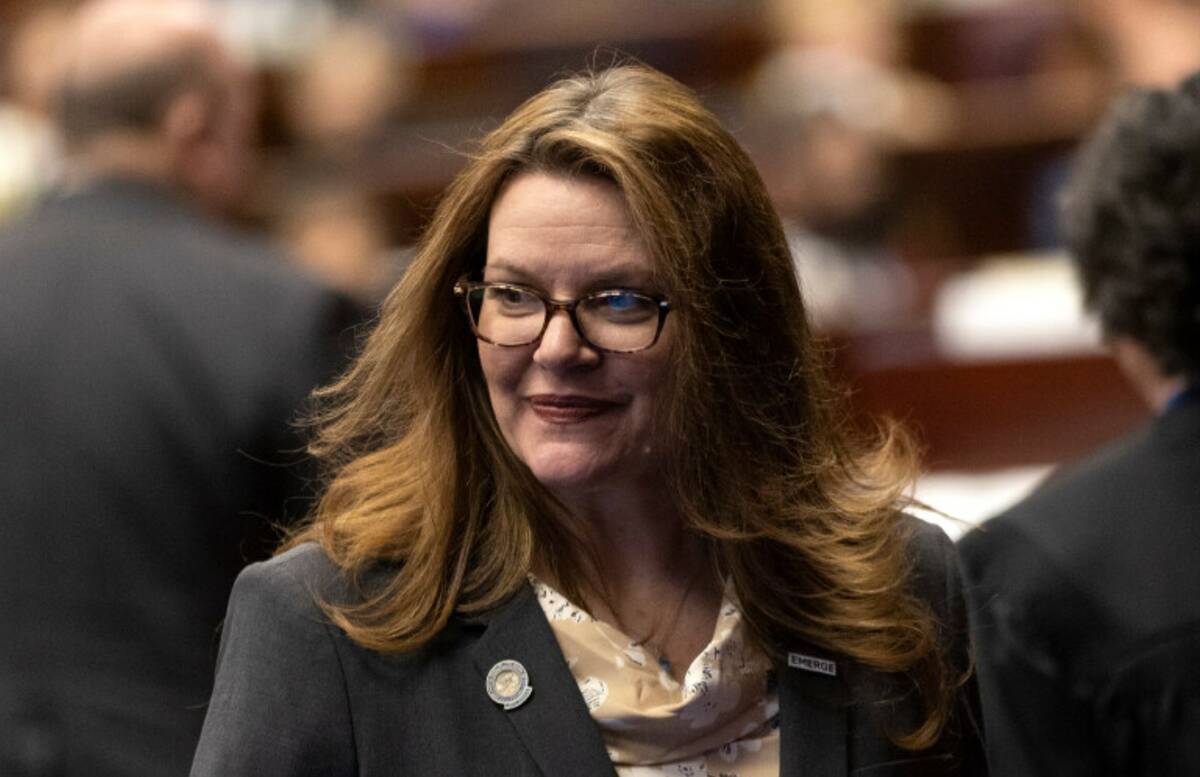Why state ethics panel cleared legislator who joined nonprofit
A state lawmaker who accepted a position with a nonprofit organization weeks after legislators voted to appropriate $250,000 to the organization did not violate state ethics laws, the Nevada Commission on Ethics ruled Wednesday.
A three-person review panel unanimously concluded that there was no evidence Assemblywoman Michelle Gorelow’s acceptance of employment with Arc of Nevada “would tend to improperly influence a reasonable person to depart from the faithful and impartial discharge of her public duties.”
The panel also found that there was no evidence the assemblywoman used governmental time, property or equipment to receive employment at Arc, or that she sought employment through the use of her elected position.
Gorelow said the complaint, which was filed by Republican operative Chuck Muth in August, was “always without merit.”
“Despite the rhetoric coming from hyperpartisan Republicans, the ethics complaint filed against me was always without merit and I am happy to put this in the past,” Gorelow said in a statement. “As I said before, I look forward to continuing my nonprofit career of almost 25 years and focusing all my attention on my work with the ARC of Nevada to serve those most in need.”
The ethics complaint was filed after the Las Vegas Review-Journal reported in late August that Gorelow was hired as the executive director of Arc — an advocacy group for people with intellectual and developmental disabilities — a month after legislators voted to give the organization its first-ever appropriation from the state.
Gorelow declined to comment on that story despite multiple requests made by phone, email and in person. The assemblywoman announced she would not seek re-election one week after the story was published and one day after Muth filed the ethics complaint with the commission, citing a desire to continue her work in the nonprofit sphere.
The commission’s opinion also detailed limits to the body’s ability to investigate a legislator’s conduct, including a 2009 state Supreme Court decision that determined much of the lawmakers’ conduct is shielded from the commission’s jurisdiction.
That ruling and a provision in state law that specifies the commission cannot exercise authority over state legislators in conflict of interest disclosures prevented the board from “investigating or otherwise taking action in relation to Subject’s vote to fund her then-future employer,” according to the panel determination.
Muth said the decision didn’t come as a surprise.
Contact Taylor R. Avery at TAvery@reviewjournal.com. Follow @travery98 on X.

















